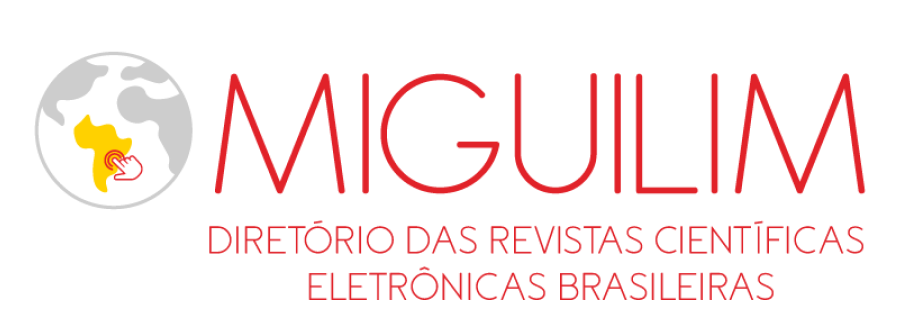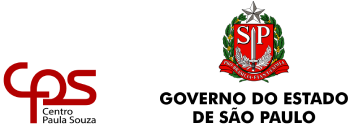The importance of exchange in english language for the brazilian university student: main modalities and opportunities
DOI:
https://doi.org/10.5281/zenodo.15531262Keywords:
Modalities of Exchange, Personal and professional development, University Student, Foreign LanguageAbstract
In the last years the search for exchange programs has increased considerably and more and more Brazilians wish to obtain the experience provided through this experience, since the labor market is increasingly valuing the exchange student's experience and the fluency in the language comes as a consequence. The English Language emerges today as a global language, whose usefulness goes far beyond the tourism. As a contact language, English is used as a means of communication in different contexts and, especially, in commercial relations with countries that speak several languages. Hence emerges the need to acquire the English Language so that the individual can be inserted in this world context and, above all, that is able to interact with it. Thus, the demand for exchange programs in English-speaking countries has been increasing in the last decades, especially among the university students who seeks for a better formation in order to be able to face the so fierce labor market. With this, the profile of the Brazilian exchange student is also changing, his / her age group, choices for the destinations and types of programs. In this sense, the article aims to analyze the main modalities
of exchange in English Language for Brazilian adults focused on the labor market, emphasizing the opportunities for personal and professional development. We carried out bibliographic research in academic articles, didactic materials, books and websites specialized in trips and national and international organizations. We also deal with the difference between acquisition and learning, as well as discussing the main aspects that have made English a language of global reach. To this end, we discuss the importance of English as a lingua franca, presenting the definition of exchange and the concept of cultural exchange, in order to characterize the profile of the current Brazilian exchange student.
Downloads
References
ABIPE - IAESTE BRASIL. Manual programa de estágio iaeste. Associação Brasileira de Intercâmbio Profissional e Estudantil. Disponível em: <http://www.abipe.org.br/ upload/programaiaeste/00000196.pdf>. Acesso em: 17 nov. 2016.
BELTA ONLINE. Quem somos. 2016. Disponível em: http://www.belta.org.br/quem-somos/apresentacao.php>.Acesso em: 01. Nov. 2016.
CI – CENTRO DE INTERCÂMBIO. Site Oficial. English as a global language. 2016. Disponível em: https://www.ci.com.br/?utm_source=google&utm_medium =cpc&utm_campaign =_PESQUISA%20%7C%20INSTITUCIONAL&utm_ term=CI%20INTERC%C3%82MBIO_>. Acesso em: 17 nov. 2016.
CRYSTAL. D. English as a global language. Cambridge: CUP, 2003.
CULTURAL CARE. Au pair: o que precisa para ser? 2015. Disponível em: <http://www.culturalcare.com.br/trabalhando-como-au-pair/requisitos-para-ser-au-pair/>. Acesso em: 10 out. 2016.
ELLIS, R. Understanding second language acquisition. Hong Kong: Oxford University Press, 1997.
FIT INTERCÂMBIO. Work and travel. 2016. Disponível em: <http://www.fitintercambio. com.br/work-e-travel.php#.Vk0tx3arTIU>.Acesso em: 18 nov. 2016.
GUERRA, V. Explorando os processos subjetivos neste mode de se deslocar na pós-modernidade. Trabalho de Conclusão de Curso de para obtenção de título de Graduação em Psicologia. Universidade do Vale do Rio dos Sinos, 2007.
IE – INTERCÂMBIO. Site Oficial. 2016. Disponível em: <http://www.ie.com.br/curso-idioma>. Acesso em: 10 out. 2016.
INTERCÂMBIO E VIAGEM. Estágios IAESTE. Disponível em: <http://www.ci.com.br/ trabalhar-no-exterior/estagios/iaeste>. Acesso em: 17 nov. 2016.
KAFLER, Liliane Cacidoni. A internacionalização do ensino superior e o caso da universidade Anhembi Morumbi. Trabalho de Conclusão de Curso de MBA. Universidade Anhembi Morumbi (UAM), 2007.
KRASHEN, S. D. Second language acquisition. Mexico: Cambridge University Press, 2013.
MARIANO, F. Intercâmbio aí vou eu. São Paulo: Editora Alaúde, 2008.
McLAUGHLIN, B. Second-language acquisition in childhood. New Jersey: Hillsdale, 2008.
PHILLIPSON, R. Linguistic imperialism. Oxford: Oxford University Press, 1992.
SALÃO DO ESTUDANTE. Como realizar um intercâmbio. Disponível em: <http://www.salaodoestudante.com.br/>. Acesso em 05 nov. 2016.
SEBBEN, A. Intercâmbio cultural. Porto Alegre: Artes e Ofícios, 2007.
SILVEIRA, Éder da Silva. A contribuição de um projeto escolar para a educação intercultural: O “intercâmbio internacional estudantil Delta do Jacui/ Brasil e Mostazal/ Chile”. Dissertação (Mestrado em Educação), Pontifícia Universidade Católica do Rio Grande do Sul, Porto Alegre, 2008.
STUDENT TRAVEL BUREAL. Intership and trainee USA. Disponível em: <http://www.stb.com.br/intercambio-trabalho/internship-and-trainee-usa>. Acesso em: 18 nov. 2016.
TAMIÃO, T. O intercâmbio cultural estudantil: uma discussão sobre o diferencial trazido na “bagagem” do estudante. Artigo apresentado no VII Seminário da Associação Brasileira de Pesquisa e Pós-Graduação em Turismo. Universidade Anhembi Morumbi – UAM, São Paulo, setembro de 2010, p. 1 – 14.
TRAVELMATE. Intercâmbio para o mundo. Disponível em: < http://travelmate.com.br/ programas/cursosnoexterior/?gclid=CjwKEAjwxJnNBRCMqNXM6vKAq1wSJADxf_5B_S7HTKfOics9pPsEOHbsSA-SWjixZ6ITxkOAgpn8rxoCdSPw_wcB>. Acesso em: 04 out. 2016.
Published
How to Cite
Issue
Section
Copyright (c) 2019 Revista Processando o Saber

This work is licensed under a Creative Commons Attribution 4.0 International License.
Os direitos autorais dos artigos publicados pertencem à Revista Processando o Saber e seguem o padrão Creative Commons (CC BY), que permite o remixe, adaptação e criação de obras derivadas do original, mesmo para fins comerciais. As novas obras devem conter menção ao(s) autor(es) nos créditos.
























